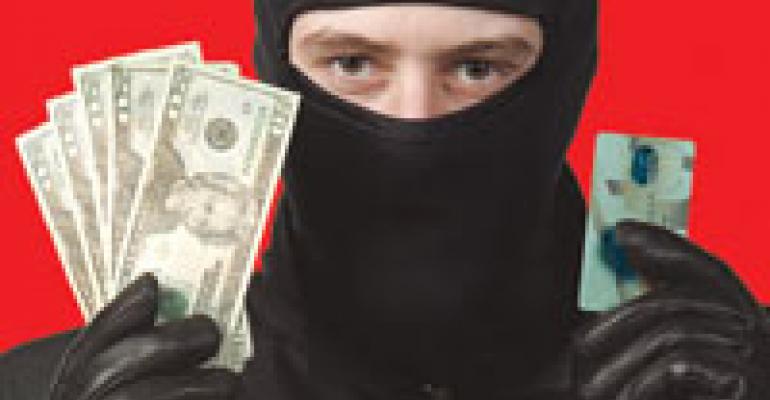LOS ANGELES Marmalade Café didn’t think it was unusual that “Dr. Allan Brad” from the United Kingdom was interested in booking a group of 15 for three consecutive nights in January. Given the morbid economy, the prospect of the potential business was more than welcome. —At first, Grace Nguyen of
After a few e-mail exchanges, however, Nguyen started to wonder if the reservation was legitimate, especially when “Brad” was willing to give a credit card number for the deposit without even asking for a menu. Nguyen did a bit of research and learned that the initial e-mail from “Brad” was identical—from wording to typos—to a scam e-mail under various names sent to restaurants and small hotels around the United States over the past few years. —At first, Grace Nguyen of
“Nobody would book a party without talking about menus,” said Nguyen, director of local-store marketing for the 10-unit, Santa Monica, Calif.-based casual-dining chain. —At first, Grace Nguyen of
Nguyen was lucky, and she ended the exchange before the restaurant company was scammed. But the number of suspicious e-mails arriving in the inboxes of operators throughout California appears to be on the rise, officials at the California Restaurant Association said, and the fact that many operators are hurting for business makes them particularly susceptible to being scammed. —At first, Grace Nguyen of
CRA officials recently alerted members to the suspicious e-mails. Leslie Miyamoto Huffman, the group’s vice president of marketing and communications, urged all restaurant operators to question any e-mail requests for reservations that seem too good to be true. —At first, Grace Nguyen of
“We hope they will do their homework and respond accordingly,” she said. “They should not take part and send any credit information as requested by the e-mail sender.” —At first, Grace Nguyen of
Typically, the writer of the e-mail offers a credit card number to put a deposit on the party booked. Then he or she asks the restaurant operator to take additional funds off the card for a third party. —At first, Grace Nguyen of
For example, the operator might be asked to use the additional money off the card to pay for a car and driver for the guests. The scammer explains that the transportation company’s credit card processing machine is broken, and that he can’t get to a bank to wire the money himself because he is “on an oil rig in the high seas.” Then he offers to provide an address where the restaurant operator can send the cash. —At first, Grace Nguyen of
Usually, the credit card is bogus and the operator is on the hook for the cash sent, not to mention the lost business from party rooms held for the group of 15—which, needless to say, never shows up. —At first, Grace Nguyen of
It’s a classic advance-fee scam, sometimes compared to the somewhat comical but ubiquitous e-mails from a “Nigerian prince,” who promises to transfer millions in cash if you just send your bank account information. —At first, Grace Nguyen of
Mike Costello, owner of the Brew It Up! Brewery & Grill in Sacramento, said the scam has been attempted at his restaurant about six times over the past year or so. —At first, Grace Nguyen of
The first time, the initial e-mails seemed legitimate, he said. —At first, Grace Nguyen of
“We just thought they were trying to get in place a standing reservation for a group from out of town for three or four days,” he said. “For restaurateurs and hoteliers, it’s believable. This is what we do.” —At first, Grace Nguyen of
Costello threw a wrench in, however, by telling the scammer prepayment wasn’t necessary. —At first, Grace Nguyen of
“It struck me as odd that they really pushed the issue that we really need prepayment,” he said. “Then they wanted us to disburse funds for taxis and tips. That was a flag that this was just weird.” —At first, Grace Nguyen of
Like Nguyen at Marmalade Café, Costello stopped the exchange before it was too late. —At first, Grace Nguyen of
There are other common restaurant scams: The customer who presents a shockingly high dry cleaning bill for clothing allegedly ruined by a server’s unsteady hand, or the raving-fan patron who spends lavishly over several days on a stolen credit card and then disappears. —At first, Grace Nguyen of
Both Nguyen and Costello agreed that most restaurant operators are pretty savvy and would not likely fall for such ruses. —At first, Grace Nguyen of
Still, “as people’s banquet rooms are less filled up, I’m sure the desire is there to believe this sort of thing,” Costello said. “These days, who wants to pass up an opportunity for a big party at $100 per head?” —At first, Grace Nguyen of




